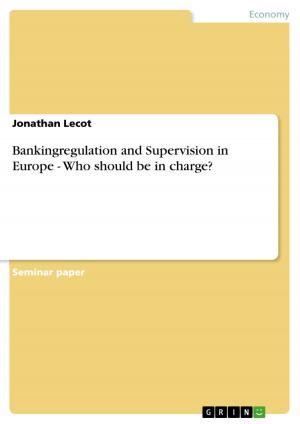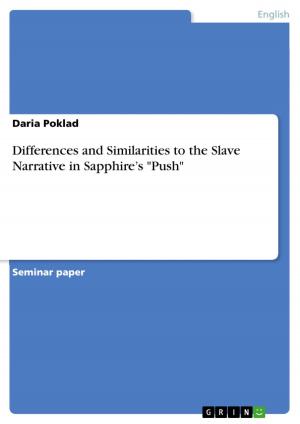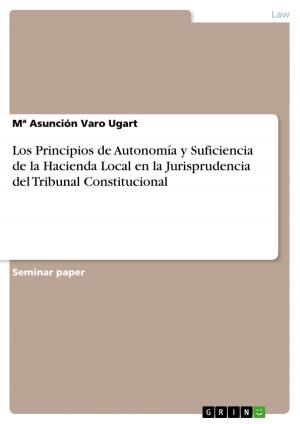The Credit on Real Estate - Local Value and Relevance for the Construction Financing in Germany and Denmark
Local Value and Relevance for the Construction Financing in Germany and Denmark
Business & Finance, Finance & Investing, Finance| Author: | Stephan Dannehl | ISBN: | 9783638450126 |
| Publisher: | GRIN Publishing | Publication: | December 24, 2005 |
| Imprint: | GRIN Publishing | Language: | English |
| Author: | Stephan Dannehl |
| ISBN: | 9783638450126 |
| Publisher: | GRIN Publishing |
| Publication: | December 24, 2005 |
| Imprint: | GRIN Publishing |
| Language: | English |
Research Paper (undergraduate) from the year 2004 in the subject Business economics - Investment and Finance, grade: 1,3, Stralsund University of Applied Sciences, 34 entries in the bibliography, language: English, abstract: Having a look at the popular definitions dealing with the topic real-estate credit, one is confronted with a wide variety of different explanations. One obstacle while searching for a suitable definition of the German termRealkredit(real-estate credit) is the fact that this term is in Germany rather known under the nameHypothekendarlehen(mortgage loan). Though one also finds the word 'Realkredit' in the relevant literature as well as in numerous other sources of definitions, it is not known in the vernacular. In Denmark the situation is completely different. Here, the termrealkreditbelongs to the mortgaging as the house to the property. Moreover, it is also known in the general language use including compound nouns such asrealkreditlån(real-estate loan) orrealkreditlov(real-estate credit act). Whether one is more cotton on to the term 'real-estate credit' or 'mortgage loan' or even 'hypothecary credit' (in German:Hypothekarkredit)is entirely up to the reader, although we later see that there is a difference between these terms. For the sake of a better comprehension, the words 'real-estate credit', 'credit on real estate' and sometimes also 'real-estate loan' will be used in the further discussion with a few exceptions regarding extracts and quotations. As far as the explicit definition of the real-state credit is concerned, authors in both countries agree upon a more or less identical explanation. In Germany's major reference book, the Brockhaus-encyclopaedia (1996, vol. 18, p. 109), one speaks about a'credit that is granted for the security of tangible assets (real estate)'.A slightly extended definition can be found on the internet platform of the Duden. Here, one describes the term as a'loan at which the debtor guarantees the repayment with real estate or other assets'.
Research Paper (undergraduate) from the year 2004 in the subject Business economics - Investment and Finance, grade: 1,3, Stralsund University of Applied Sciences, 34 entries in the bibliography, language: English, abstract: Having a look at the popular definitions dealing with the topic real-estate credit, one is confronted with a wide variety of different explanations. One obstacle while searching for a suitable definition of the German termRealkredit(real-estate credit) is the fact that this term is in Germany rather known under the nameHypothekendarlehen(mortgage loan). Though one also finds the word 'Realkredit' in the relevant literature as well as in numerous other sources of definitions, it is not known in the vernacular. In Denmark the situation is completely different. Here, the termrealkreditbelongs to the mortgaging as the house to the property. Moreover, it is also known in the general language use including compound nouns such asrealkreditlån(real-estate loan) orrealkreditlov(real-estate credit act). Whether one is more cotton on to the term 'real-estate credit' or 'mortgage loan' or even 'hypothecary credit' (in German:Hypothekarkredit)is entirely up to the reader, although we later see that there is a difference between these terms. For the sake of a better comprehension, the words 'real-estate credit', 'credit on real estate' and sometimes also 'real-estate loan' will be used in the further discussion with a few exceptions regarding extracts and quotations. As far as the explicit definition of the real-state credit is concerned, authors in both countries agree upon a more or less identical explanation. In Germany's major reference book, the Brockhaus-encyclopaedia (1996, vol. 18, p. 109), one speaks about a'credit that is granted for the security of tangible assets (real estate)'.A slightly extended definition can be found on the internet platform of the Duden. Here, one describes the term as a'loan at which the debtor guarantees the repayment with real estate or other assets'.















